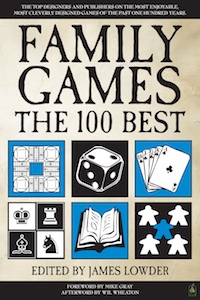Today, I’m going to put on my project manager hat and share with you some of my frustrations working for FlamesRising.com. Because I work as a professional marketer for my day job, I’ve been able to translate a lot of my knowledge and test the things I’ve learned through this website. FlamesRising.com is a horror, dark fantasy and dark science fiction webzine that offers new, reviews, interviews and other content for fans of the genre. Part of my role is to reach out to other authors, game designers, artists, publishers, etc. to help provide them coverage on our site for our readers.
 Reviews are easy to write, because in a review, I have the product in front of me and I can assess its value based on my personal opinion. However, reviews are also time-consuming and they are not the “only” focus of the site. Often, we reach out to people (or they reach out to us) to get different kinds of coverage like an interview or design notes, etc. One of the biggest challenges that I have, is that it is very rare when someone provides me with enough information to talk about their game, comic, book or movie. Nine times out of ten, we do not get a press release that explains the important points about a product or an author. Translation? We then need to research the product or the creator to find things to talk about. In some cases, creating a news piece about a new product takes longer than writing a review for this reason.
Reviews are easy to write, because in a review, I have the product in front of me and I can assess its value based on my personal opinion. However, reviews are also time-consuming and they are not the “only” focus of the site. Often, we reach out to people (or they reach out to us) to get different kinds of coverage like an interview or design notes, etc. One of the biggest challenges that I have, is that it is very rare when someone provides me with enough information to talk about their game, comic, book or movie. Nine times out of ten, we do not get a press release that explains the important points about a product or an author. Translation? We then need to research the product or the creator to find things to talk about. In some cases, creating a news piece about a new product takes longer than writing a review for this reason.
As careful as we are, this approach can actually translate into us asking questions that don’t help the audience uncover what they want to know about the person we’re interviewing. There are a ton of different ways to write an interview, too, that can range from a single product focus to a role at a company. So you understand our time constraints, we started a preview functionality, but on average, it takes us a few hours to manually code each one because we typically don’t get it in the correct format.
Although it’s certainly not the case, sometimes it feels like there is an underlying expectation that we should do most of the heavy lifting. (Believe me when I say, that if I was employed full-time in this role, making a decent salary, I would do most of the heavy lifting. In our roles, we do not get paid a salary. Our site is free for everyone to read and enjoy.) The truth is, most sites that can provide creators and publishers with the coverage they need are built on a “free” model so a lot of other sites like ours are in the same boat. There are sites that are owned by a corporation, but even then their content will, understandably, have a slant or an agenda that fits their goals. Our goal, simply, is to share content about the genre that we love so much.
What can you do to help? You know your product the best! When it comes to news releases, interviews, contests, etc. why not come up with a few, different press releases that tell us about you or your product. Why will your audience like it? Why not determine what the highlights are (e.g. talking points) and let us know when we’re taking a look at what you’re promoting?
We have worked with professional marketers that work at publishing houses as well as individual authors that don’t have a public relations agent. Regardless of “who” is submitting the content, it helps save us time and get more content on the site faster if we have it delivered to us in a web-friendly format. While we have a promotional schedule, it also helps if you tell us when your product is going to be released and whether or not you like more than one press release posted to the site.
In order for any website to provide you with the best coverage possible, my personal opinion is that you really need to be very clear and open with your communication. I know a lot of authors and publishers worry about that first week or first month’s sales, but in our experiences, you can’t be afraid to talk about something that’s an “old” product that your existing fans enjoy, too. It’s amazing to me that there’s a preconceived notion out there that if one website in cyberspace talks about your product, then you’ve “done your job” providing PR.
There’s three things I’d like to point out here: one, if you have a website or a blog, you will help your readers learn more about you if you link back to (or mention) the content that has been provided for you. Second, no “two” website audiences are alike. FlamesRising.com has its own market of readers which may be different from another site. Yes, there could be some overlap, but that’s not necessarily a bad thing. We can help you tailor your content to our audience (which is what every website does) and we hope that you’ll work with us. Third, no matter how popular you are, not everyone knows about your work. That simple statement affects not only our content to our readers, but I hope that it sparks your imagination when talking about your products, too.
I hope that the things I’ve shared in this post today will help you on your quest to spread the word about your products and work. My goal here was to shed some insight on how you can manage your PR better by showing you the effect of poor communication.


 I was fortunate to attend a presentation given by author
I was fortunate to attend a presentation given by author  Have you heard the line, “Your D&D game won’t make a great novel?” If you’ve heard me speak on panels before, or if you’ve read several submission guidelines from agents or publishers, you might have. I’d like to tackle why.
Have you heard the line, “Your D&D game won’t make a great novel?” If you’ve heard me speak on panels before, or if you’ve read several submission guidelines from agents or publishers, you might have. I’d like to tackle why.